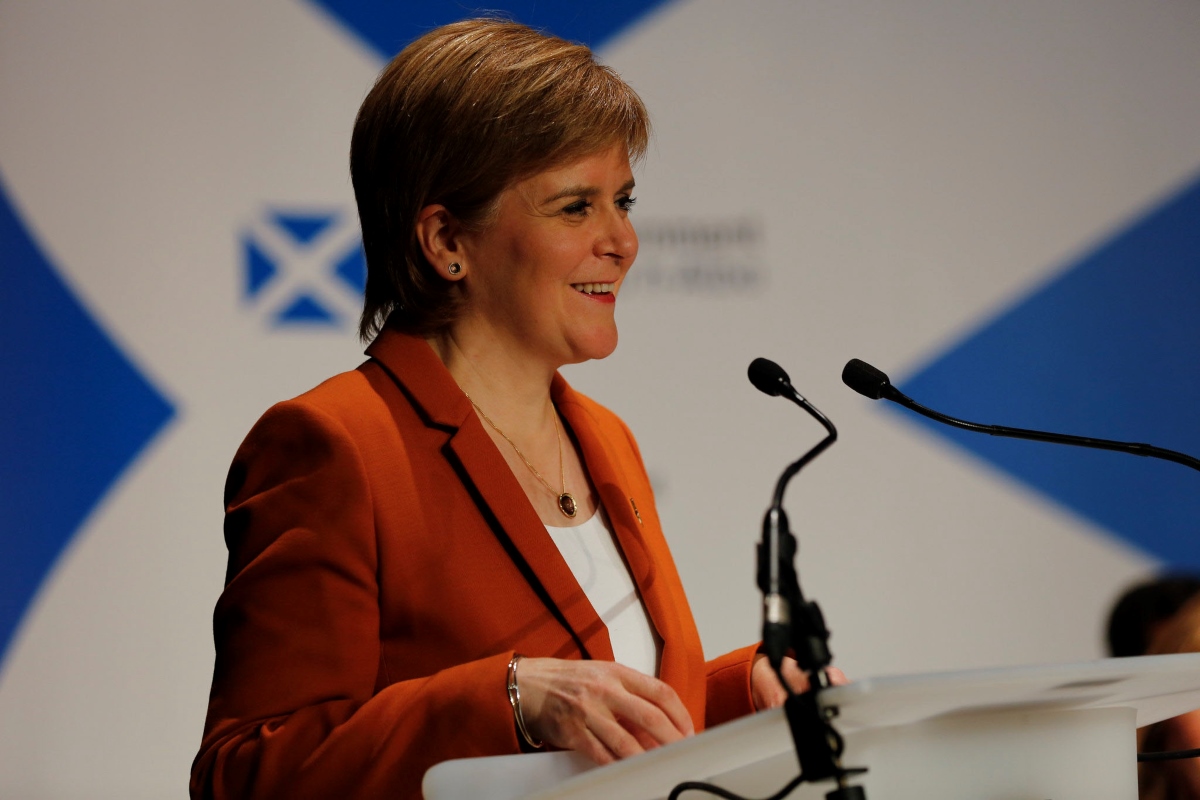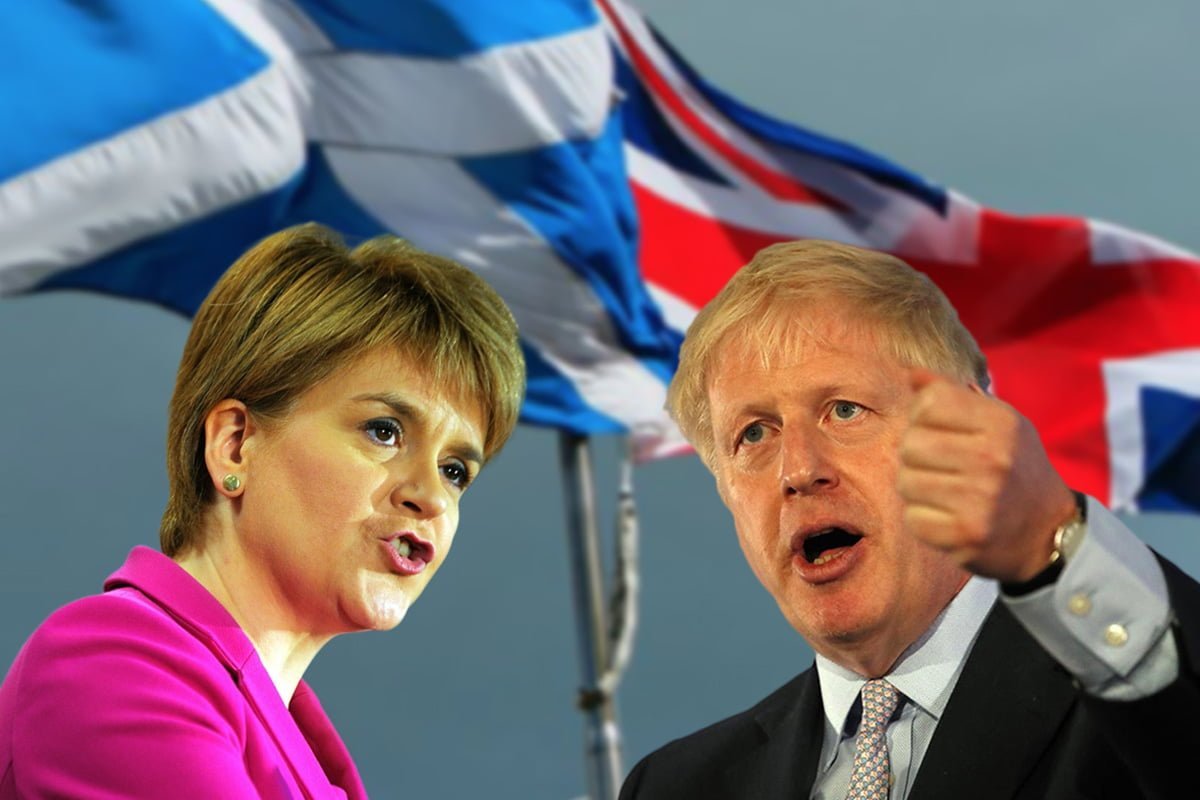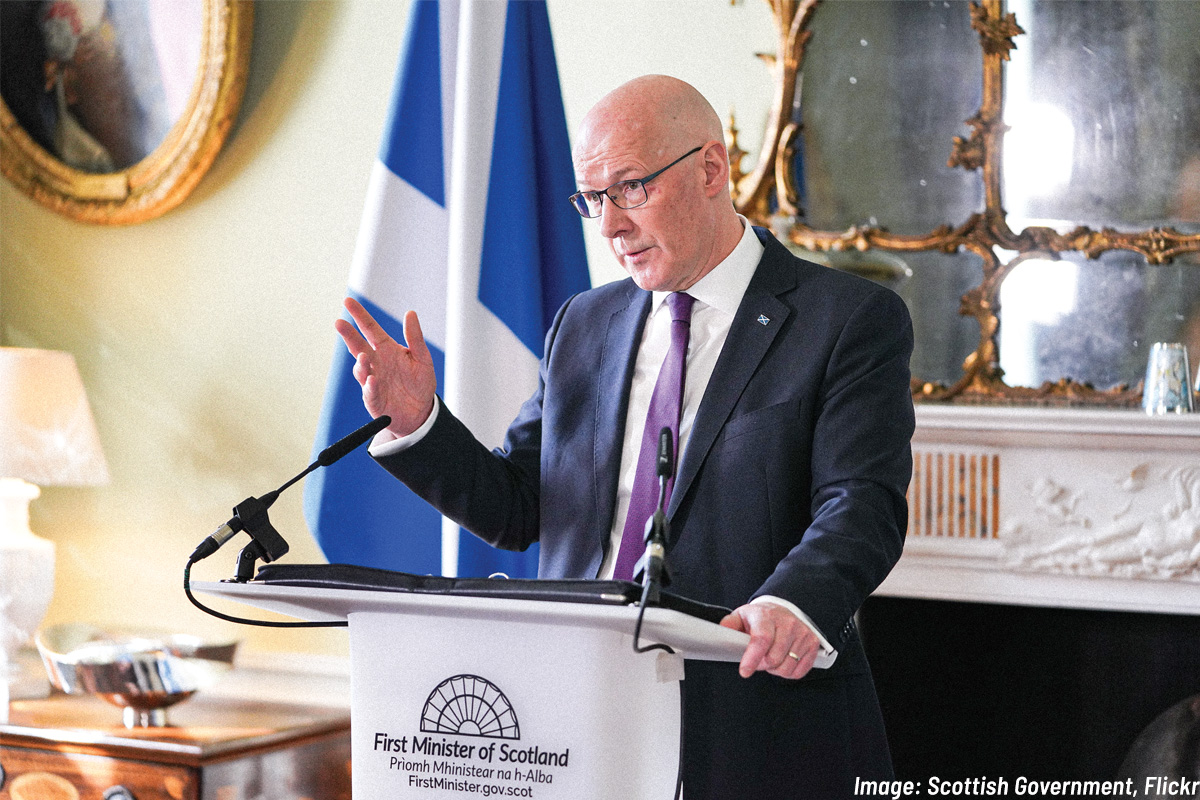Conflict between the Tories and Holyrood has boosted support for independence. However, Yes supporters are growing critical of the SNP leadership. Boris Johnson may find himself presiding over Brexit, the pandemic, and a break-up of the Union.
Tensions between the Scottish government and the Tories have broken out over the future of devolution after Brexit. The Scottish constitution secretary Mike Russel wrote to Michael Gove protesting plans for a ‘UK Single Market’, which the SNP alleges is a “power grab” and a threat to devolution.
As the UK leaves the EU, laws and regulations formerly made at the European level will be repatriated to the UK. It has long been the position of the Scottish and other devolved governments that those powers should be repatriated to the devolved assemblies, rather than to Westminster.
These powers chiefly cover the ability to set regulations and standards in a multitude of areas, including food, agriculture, fishing, etc. The SNP say that without control over these powers, Scotland will be forced to accept any lowering of standards or cuts to regulations pursued by the Tory government. They say this is an infringement of Holyrood’s right to govern in these areas, and opens up the NHS to the dangers of a Tory trade deal with Trump.
Predictably, the Scottish government’s protests were dismissed by Gove, who arrogantly asserted that these concerns were just a nationalist plot to stir up discontent.
Independence
 Boris Johnson, meanwhile, is heading for another visit to Scotland today, in an effort to make good on his promise that he would be the prime minister to strengthen the Union post-Brexit.
Boris Johnson, meanwhile, is heading for another visit to Scotland today, in an effort to make good on his promise that he would be the prime minister to strengthen the Union post-Brexit.
Opinion polling on independence, however, would indicate the opposite. ‘Yes’ support has increased steadily since Johnson became prime minister. And recent polling by Panelbase puts independence on a firm 50% of the vote.
Scotland is heading for Independence according to polls and age demographics.
Latest polls show Yes support now breaking 50%
…by age range downwards Scottish voters overwhelmingly support Independence
Latest @panelbase poll is 63% support under age 55 pic.twitter.com/Dq7wZBSiWN— ScottishPoliticsNews ??????? (@ScoPoliticsNews) June 30, 2020
Professor John Curtice has said that ‘Yes’ is now the favourite to win a referendum, if it were held soon. These are historically high levels of support for Scottish independence, only seen before in the run up to the 2014 referendum, when the British ruling class was well-and-truly shaken.
Demoralisation
This increase in support for independence, the fracas over devolution, and the background of the coronavirus crisis is a dangerous mixture for the Tory government. Public trust in Johnson has plummeted due to his disastrously inadequate response to the pandemic. Nicola Sturgeon, meanwhile, is seen to be managing with competence and humanity.
Boris Johnson will today be visiting Scotland, but his arrival in Orkney may not be as welcoming as he might hope. There is currently a 99 point difference between Nicola Sturgeon and the Prime Minister in their net approval ratings. pic.twitter.com/KVQxQAOYXF
— scotland in numbers (@spreadsheetian) July 23, 2020
But these obvious advantages in the current situation have not translated into higher confidence within the independence movement. There is much celebration over the polling numbers, of course; but few are certain the SNP leadership can capitalise on them. To most Yes supporters, it does not feel like independence is foreseeable in the next couple of years.
The demoralisation felt in the movement is blamed on the constant stop-and-start of the official independence campaign; and the fact that Sturgeon has no plan to achieve independence other than asking Boris Johnson to approve another referendum.
This impasse – which Sturgeon has apparently led the movement into – has turned trust into its opposite. There is now more cynicism felt towards the SNP leadership, to the point that some activists feel they have given up fighting for independence, or don’t want it at all. Many believe that the issue is just used to rally SNP supporters around the idea of a moderate Scottish government.
Criticism
Nationalist discussion spaces abound with predictions for the 2021 Holyrood elections. The SNP are expected to absolutely dominate the vote, with 45-50%.
SNP polls? Here’s the latest Panelbase one. Or you could check some of Tory Lord Ashcroft polls. Why do you believe #Indy Scotland wouldn’t be able to borrow money, like the UK Gov did for Covid? Or every one of nearly 200 independent countries in the world do? UK’s £2TN in debt. pic.twitter.com/7Z8xdL4skN
— ayeyesouisijatakigen (@jthomson_john) July 20, 2020
Still, there are proposals to try and guarantee a pro-independence majority in the Scottish Parliament by standing an ‘Alliance for Independence’ party to supplement the SNP vote. Though they are unlikely to see much success, support for the ‘Alliance’ is bound up with feelings that the SNP are inadequate or need to be pushed further on Independence.
There has also been renewed criticism of the SNP from the left of the independence movement. Left-wing SNP MP George Kerevan, for example, penned an article that outright accused the Scottish government of having turned “boldly to the right”, having become bureaucratised and reorientated towards the interests of aristocratic landlords and Edinburgh financiers.
Shortly after this article, Robin McAlpine of left-wing think-tank Common Weal wrote an even sharper condemnation of the SNP government’s record, expressing frustration at party members’ reluctance to accept left-wing criticisms before now.
Splits
 As Kerevan writes, however, these debates and issues raised in the wider independence movement are mostly ignored by the SNP leadership. What perhaps is more concerning to them are the rumours of intrigue at the top of the party hierarchy.
As Kerevan writes, however, these debates and issues raised in the wider independence movement are mostly ignored by the SNP leadership. What perhaps is more concerning to them are the rumours of intrigue at the top of the party hierarchy.
After the Salmond trial, there appears to be an anti-Sturgeon clique forming out of the former First Minister’s supporters. Joanna Cherry MP – who led the SNP’s lawsuit against Boris Johnson’s prorogation of Parliament – is seen as a possible challenger to Sturgeon’s leadership.
Despite the best wishes and forceful proclamations of Boris Johnson that the Union is stronger than ever, the opposite tendency is in motion.
For the bourgeois SNP leadership, too, their desire to maintain the unity of the nationalist movement is increasingly undermined by centrifugal tendencies. Only a socialist leadership can offer a way forward for workers and youth.






